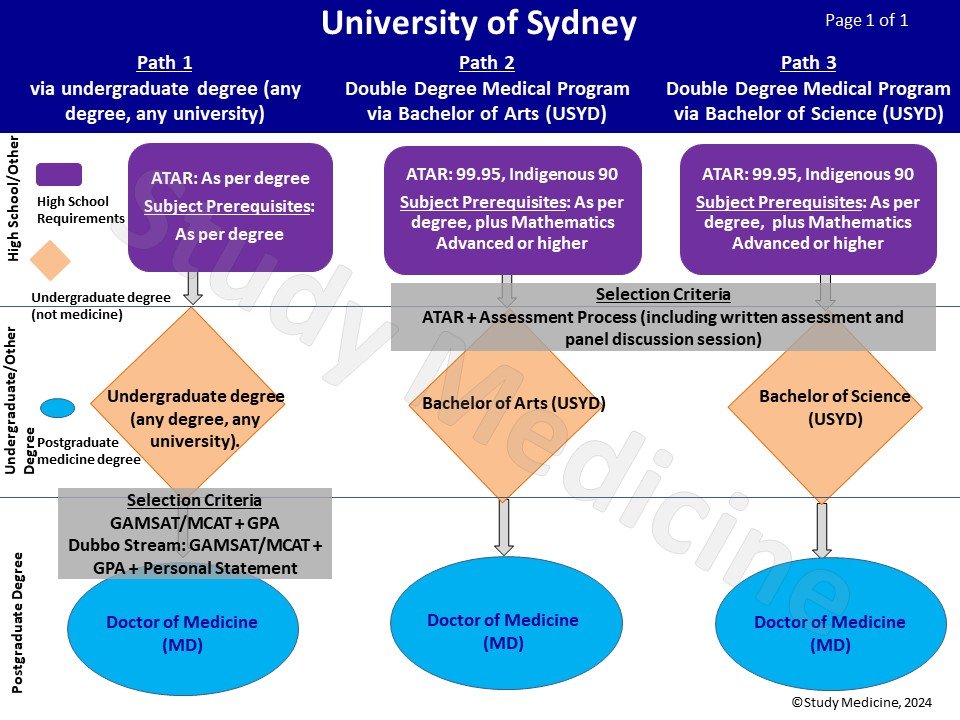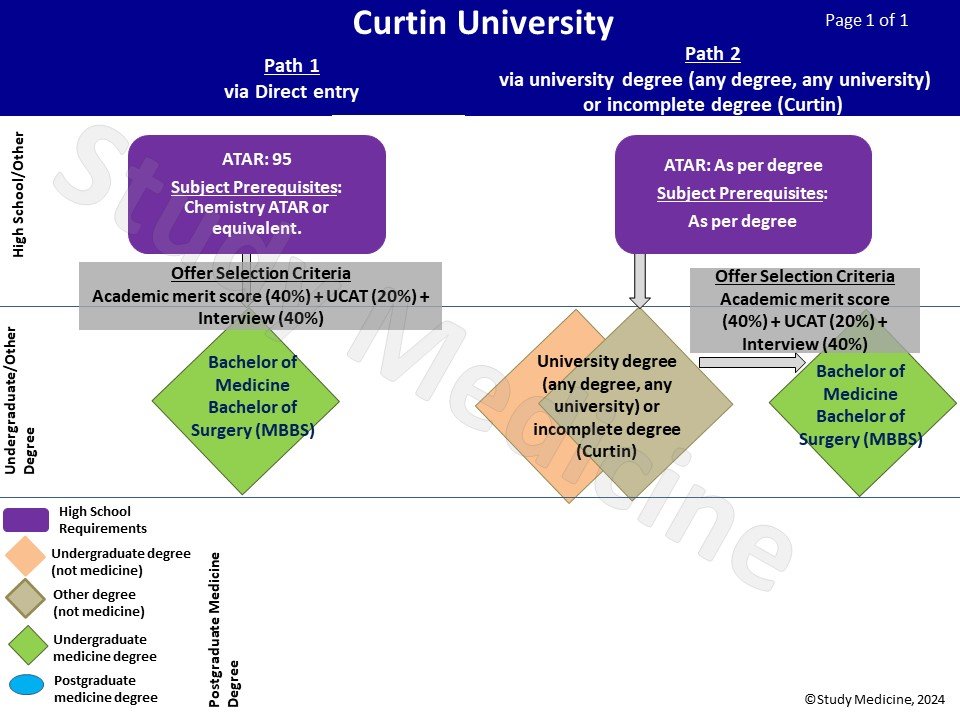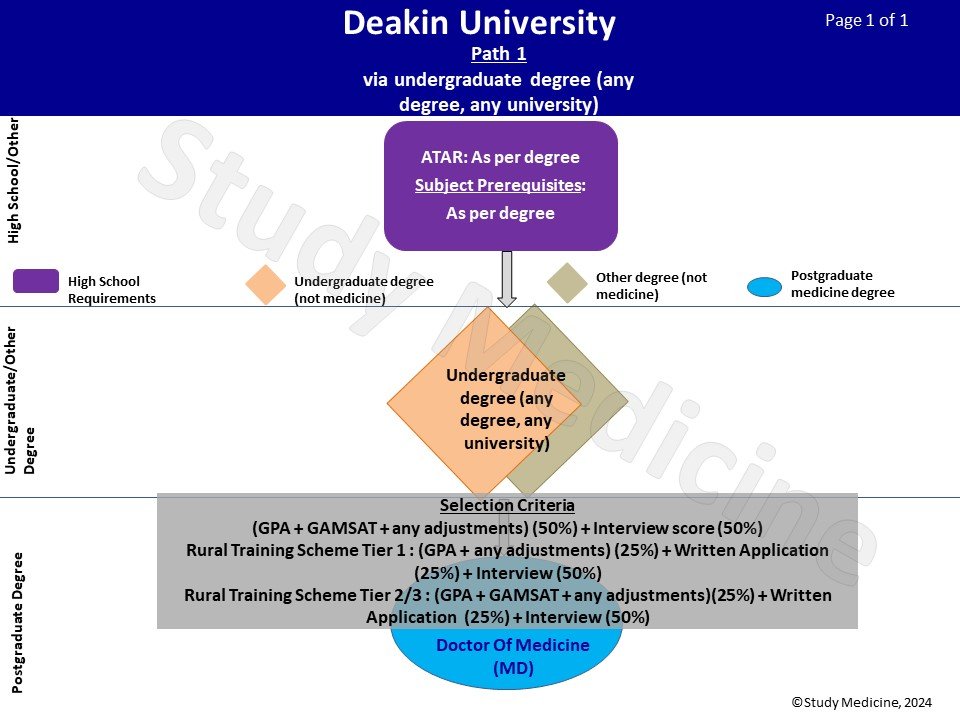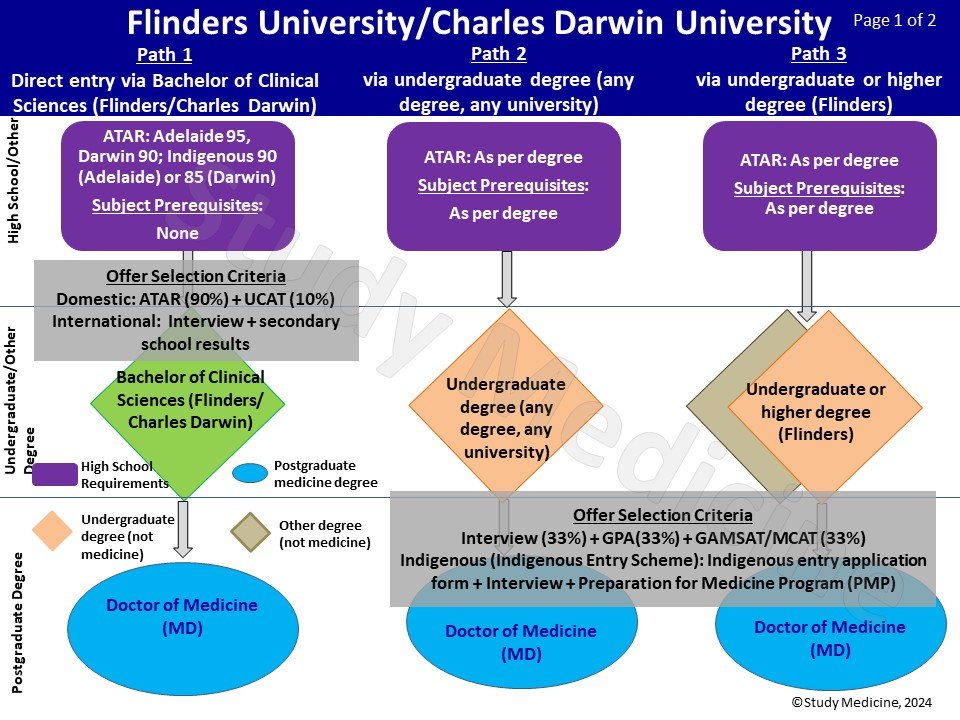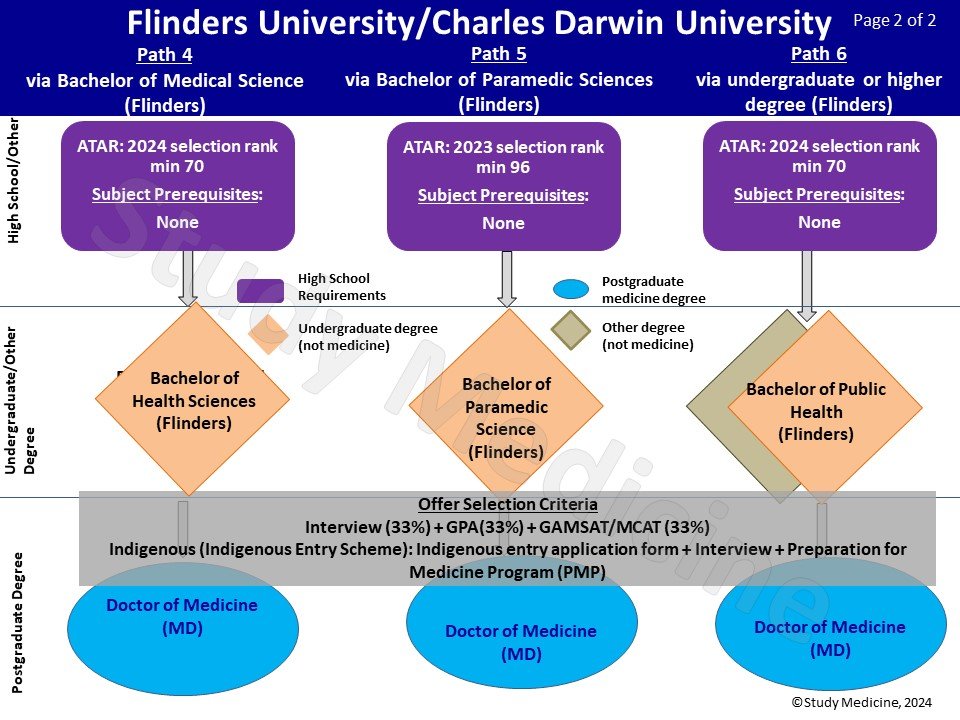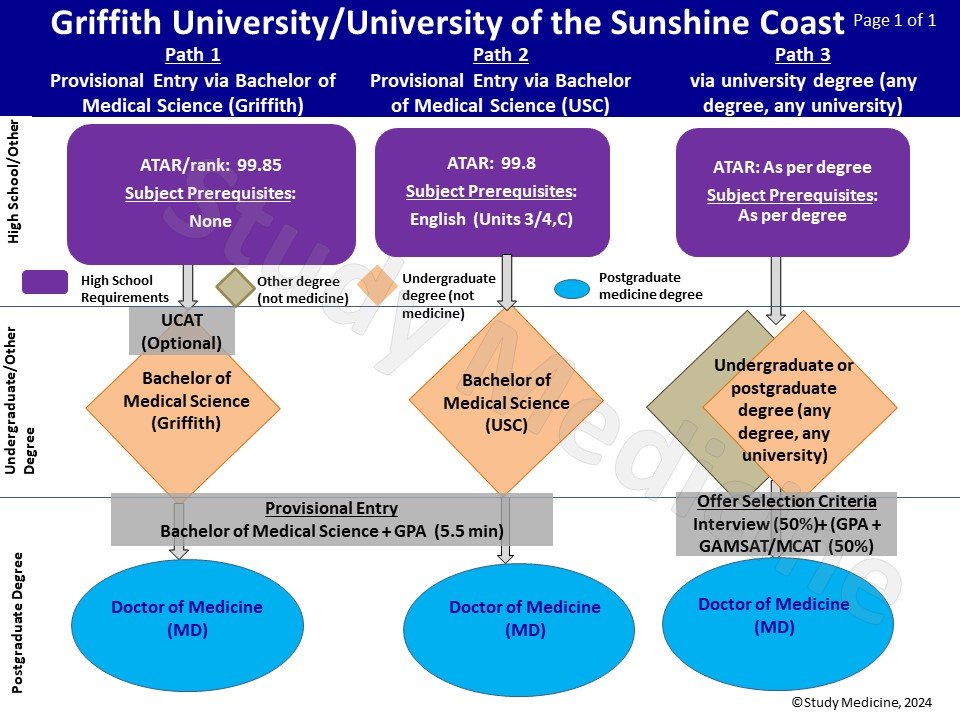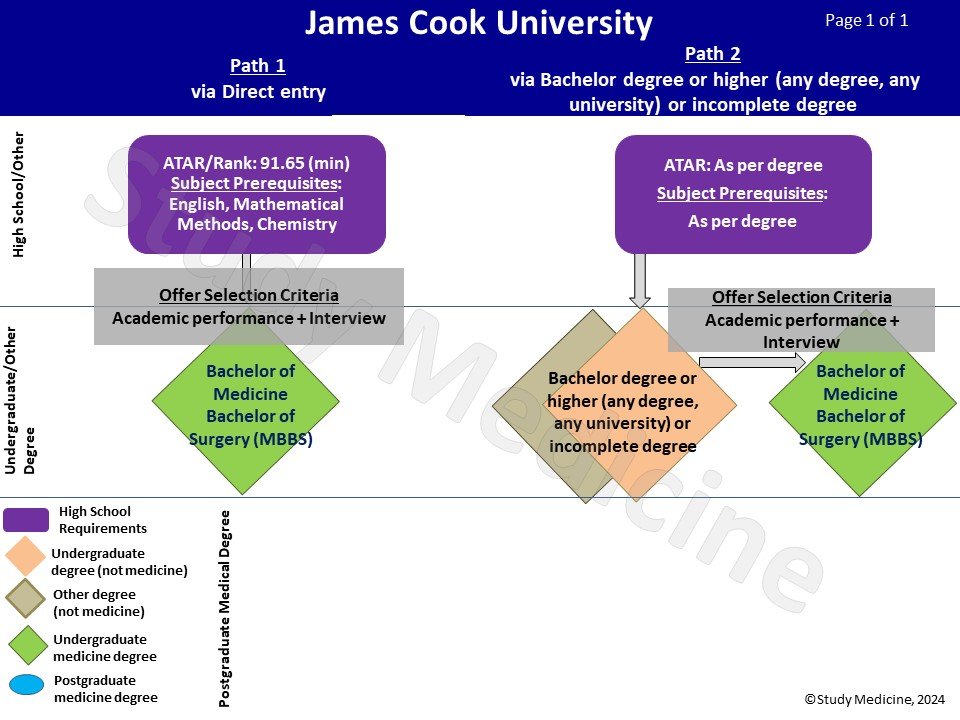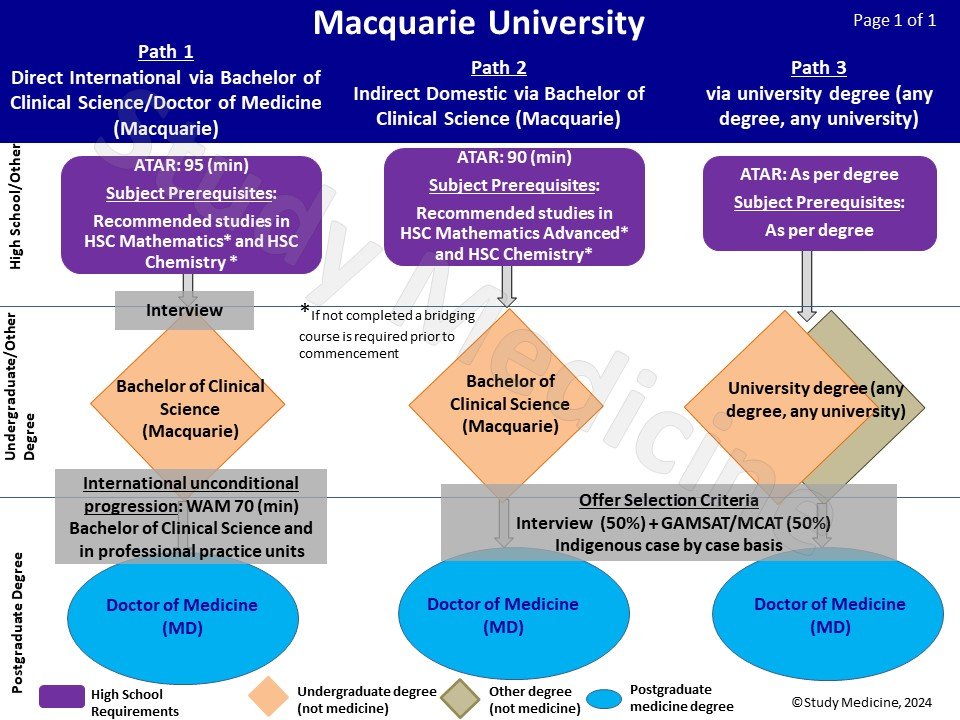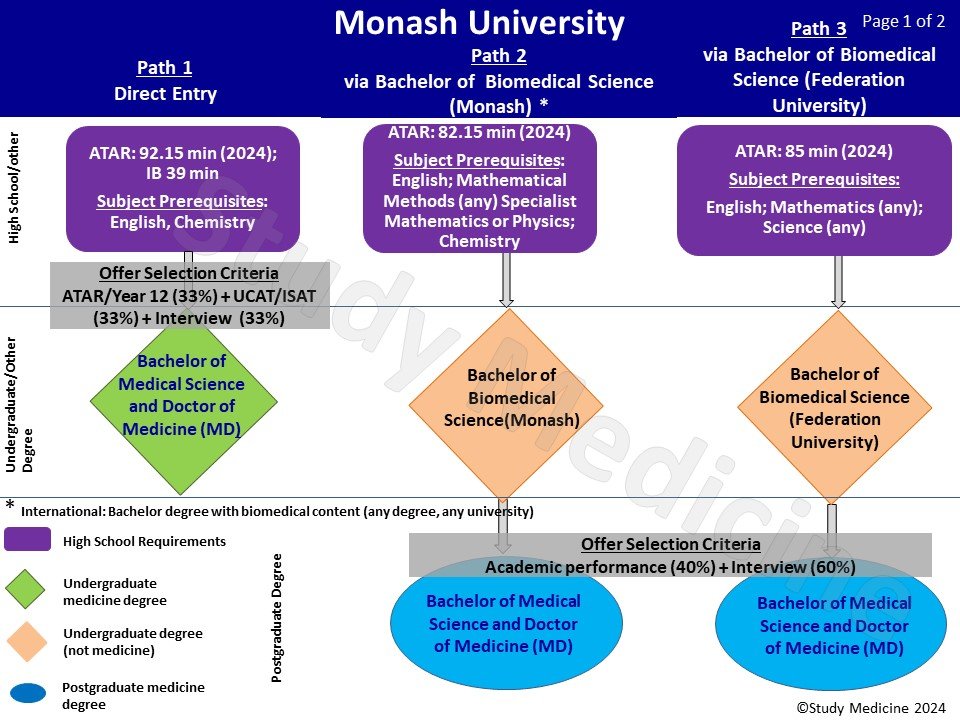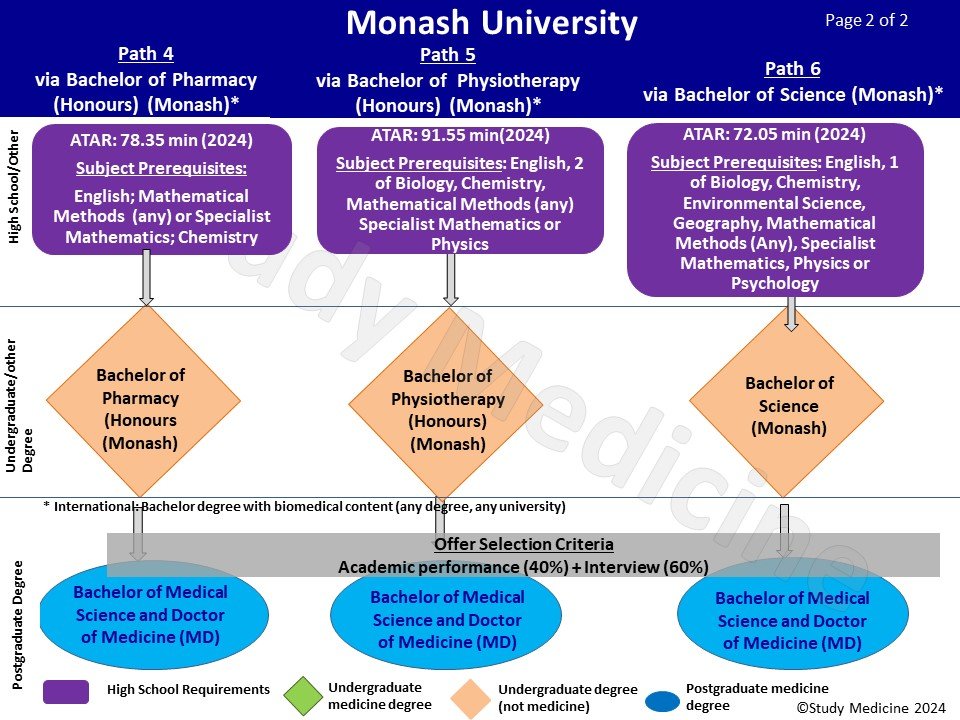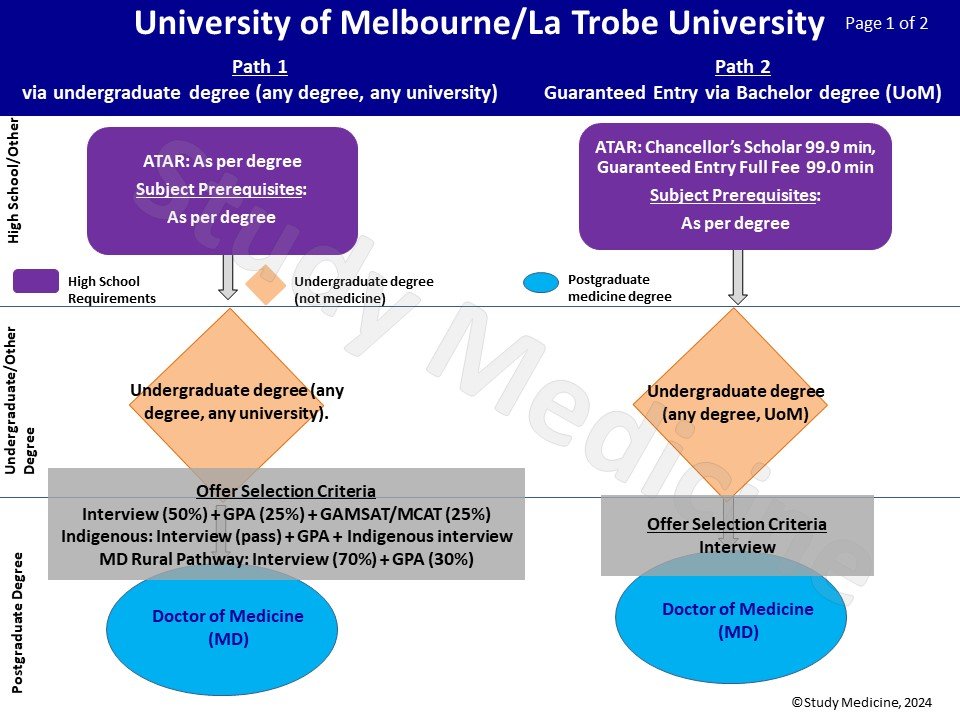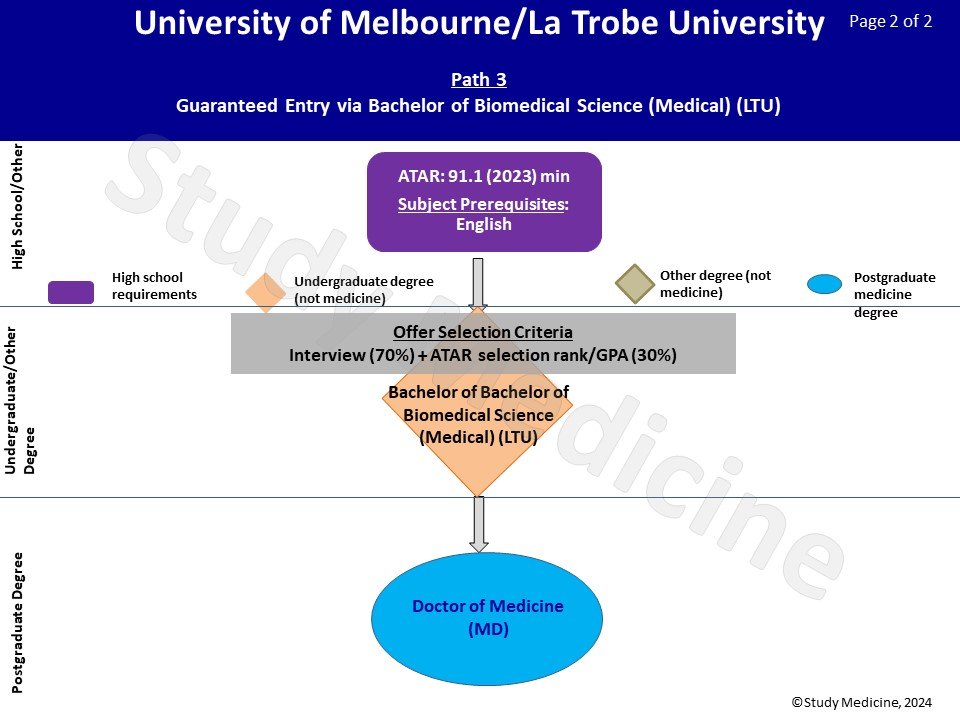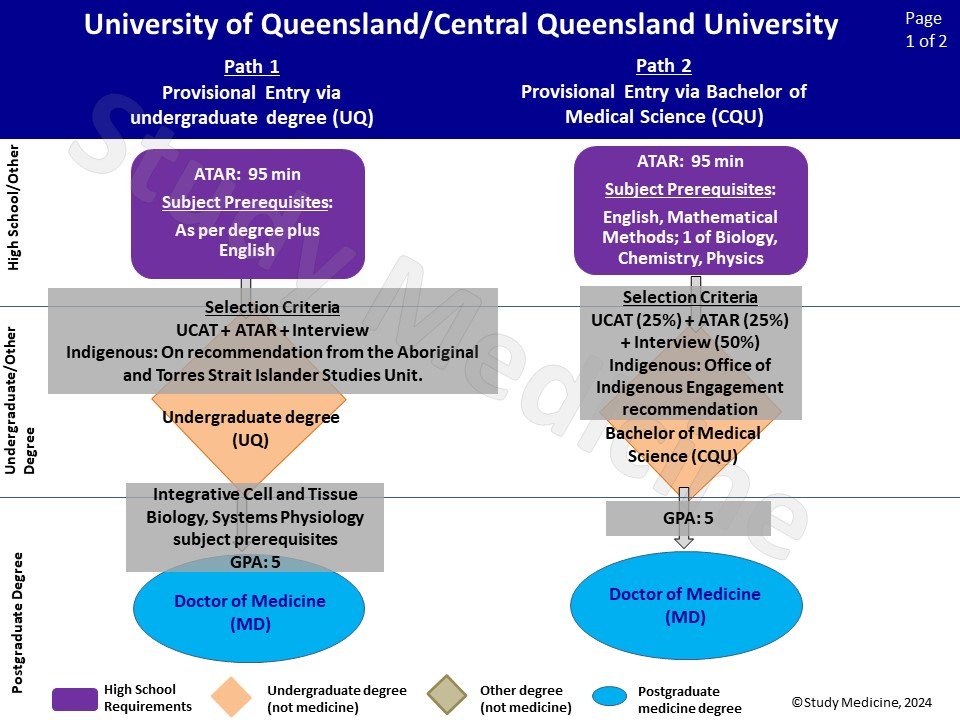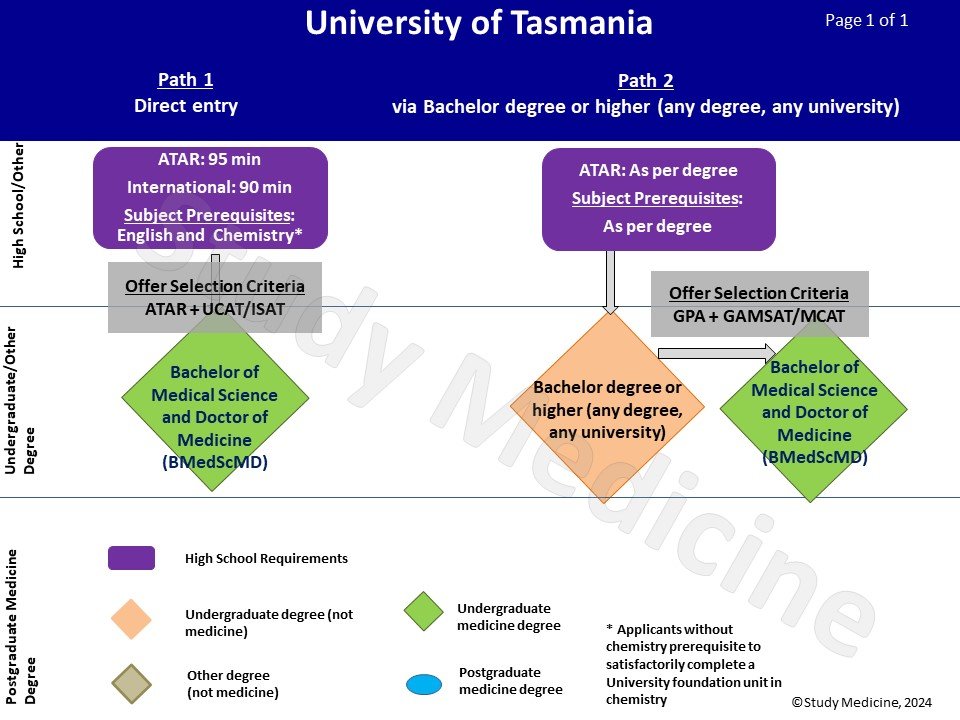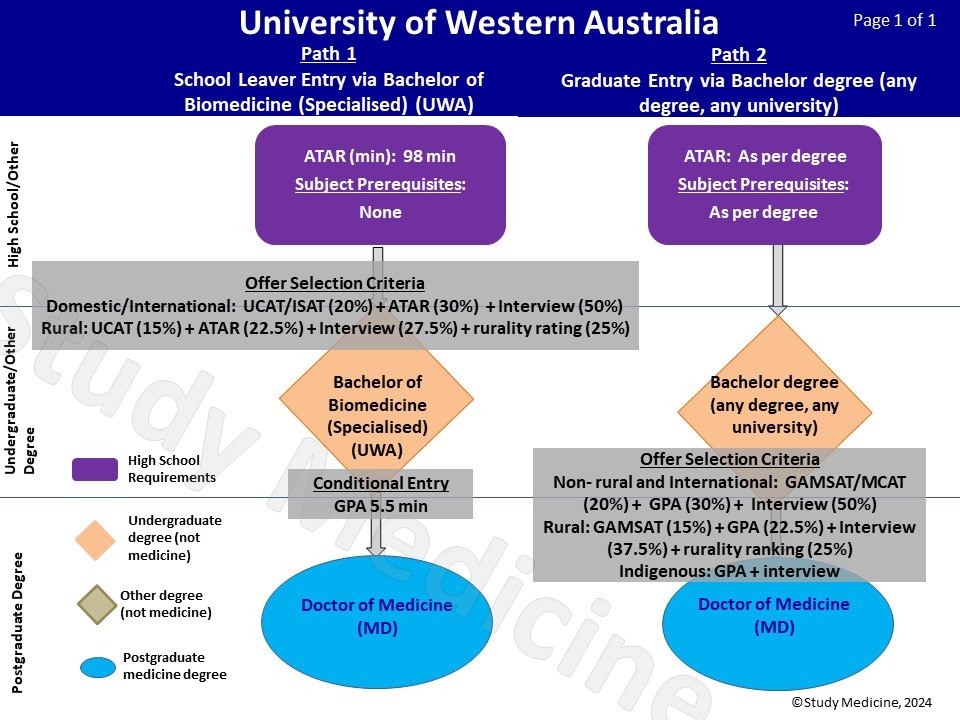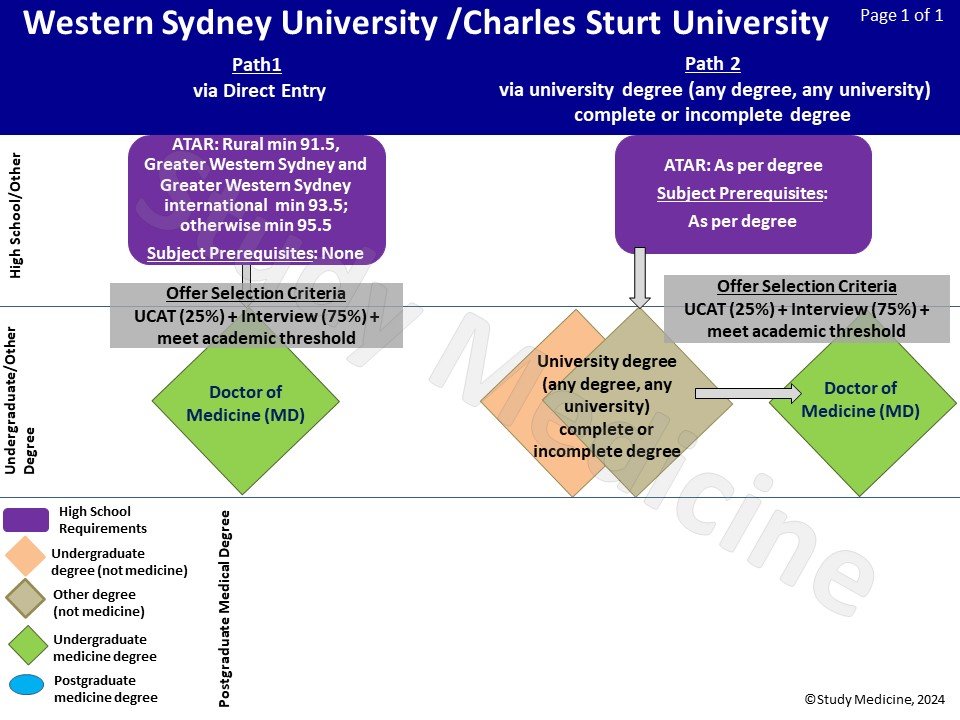University of Sydney Medicine - detailed entry requirements and how USYD compares with other universities
As shown in the Summary, the University of Sydney (USYD) offers 3 paths to medicine -
Path 1 - Doctor of Medicine (graduate entry) through an undergraduate degree from any university, and
Paths 2 and 3 - the Double Degree Program for high achieving school leavers, through a three-year undergraduate degree in either Arts or Science at the University of Sydney. These paths provide guaranteed entry to the Doctor of Medicine program.
Entry Requirements - The full details regarding the entry requirements for medicine at USYD are given in the table below.
This table shows, not only the requirements to obtain a place in the graduate medicine degree, but also details how each of the 3 paths flow into the medicine degree and what you need to keep in mind, not only for medicine, but also when applying for your undergraduate degree.
How USYD Compares with Other Universities - Scroll further down, below the table and you'll also see the USYD Comparitor. This tool enables you to compare the 3 paths to medicine at USYD , with other university paths to medicine (offered by 19 Australian universities).
University of SYDney detailed entry Requirements
There are a number of notable aspects in how USYD structures its graduate medicine degree and how the 3 undergraduate paths flow to it.
Changes to Maths
Changes for entry in 2025 include the removal of the advanced maths prerequisite from the Bachelor of Arts/Doctor of Medicine and Bachelor of Science/Doctor of Medicine degrees.
Double degree requirements
You need a serious ATAR of 99.95 to be admitted into the Double Degree Medicine Program (Indigenous applicants require an ATAR of 90). The number of students admitted into this Program is 40 - with 30 domestic and 10 international places, with this representing 13% of the total medical school. Once in, students need to continue to meet all progression requirements to proceed into the Doctor of Medicine degree.
Types of previous degrees appropriate for University of Sydney medicine
The University of Sydney will accept Bachelor degrees in all disciplines and from all universities. You also need to have completed at least 2 years study at the awarding institution.
Consistent with many other universities, Bachelor degrees more than 10 years old need to be refreshed. At Sydney, however, the requirement is for a completed graduate degree or diploma of at least 1 year of full time study. If you are able to demonstrate sustained research productivity in a relevant area over the period post your Bachelor degree you may also be considered eligible. The additional requirement in this is you need to have completed at least 1 year full time study at the awarding institution.
Minimum time periods at awarding institutions do not apply for Indigenous applicants.
Changes to curriculum from 2020
Changes to the curriculum in 2020 increased clinical settings and preparation for practice time. The implications of this is greater emphasis on biomedical science in 1st year. The University of Sydney has stated their commitment to broad studies meaning they continue to encourage students from any undergraduate discipline to apply for the medicine degree, noting that anatomy, physiology and molecular and cell biology knowledge is assumed. To address this curriculum change, the University of Sydney introduced an online Foundational Knowledge Course specifically aimed to provide required anatomy, physiology and molecular and cell biology knowledge. This Course includes an integrated self-assessment.
Completed Bachelor degree - a trap for the unsuspecting
Many Universities actively facilitate and encourage students to undertake exchange programs. There is, however a major trap for the unsuspecting at the University of Sydney with this as the University stipulates students need to have completed their undergraduate degree by 1st January of the year they intend to commence Doctor of Medicine studies. The implications of this is if you are also intending to undertake summer school activities or an exchange program that may delay the completion of your degree beyond 1st January this will make you ineligible for the Doctor of Medicine program that year.
The University of Sydney is complicated
The University of Sydney acknowledge their application process for the Doctor of Medicine is complicated - so much so that they recommend students commence the application process at least 1 year in advance.
Rural medicine at Sydney
As part of the Murray Darling Medical Schools Network, the University of Sydney are now providing at Dubbo a 4 year graduate entry medicine course. This seeks to attract Indigenous and rural students with the aim of the Murray Darling Medical Schools to support students from rural areas to study medicine in rural locations and then practice in rural and regional Australia.
Your GPA calculation
If you are a domestic applicant, make sure you go through the Qualifications Assessment Service at UAC to have your GPA calculated. There are designated time periods for this so make sure you understand the cutoff deadlines for GPA assessment. If you are an international applicant your GPA will be calculated by the University of Sydney.
university of sydney Comparitor
USYD Comparitor - Click the arrow to scroll through other university paths to medicine to compare the University of Sydney's paths (some universities have numerous paths and these are shown on separate pages).
USYD's Paths to Medicine
Compared with -
Other University Paths to Medicine
An important qualification
Study Medicine information has been compiled from Australian university information sources and therefore is a guide. Authoritative information is provided by the university only. Make sure you obtain information directly from the university before making any decisions.
The above information is intended to help you understand the University of Sydney medical degree and the available paths to gain entry. Remember, information can always change, so ensure you keep up to date by regularly checking directly with the University of Sydney.
